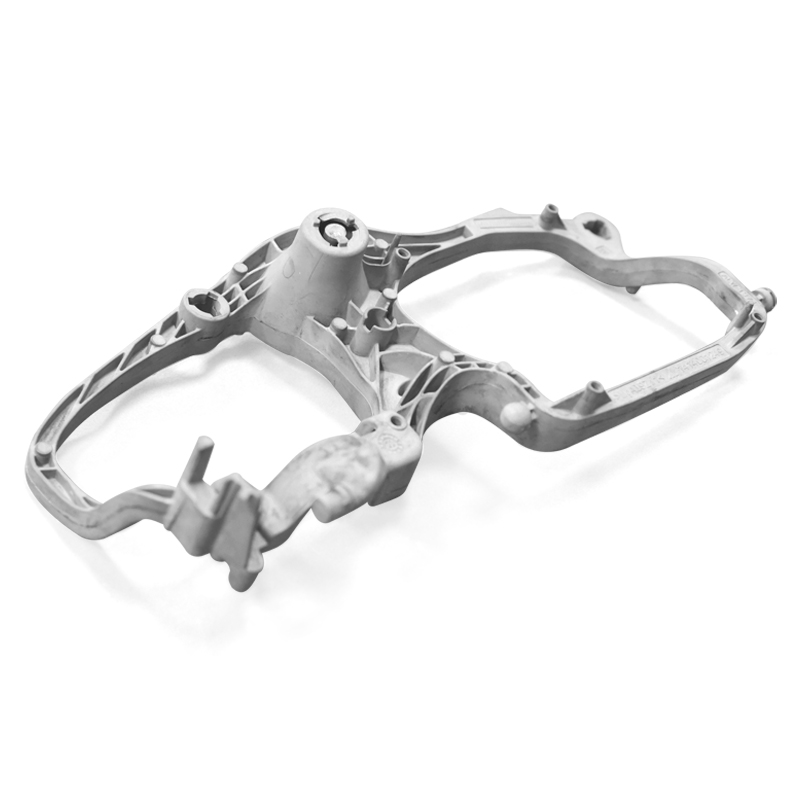Introduction
In the manufacturing industry, the production of metal components requires precision and accuracy. One crucial aspect of achieving this level of precision is the use of aluminum die cast molds. These molds play a vital role in producing intricate and detailed metal parts that meet the industry\’s stringent quality standards. This article will delve into the significance of aluminum die cast molds in metal component production and explore the various benefits they offer.
1. Understanding Aluminum Die Cast Molds
An aluminum die cast mold is a specialized tool used in the die casting process, which involves injecting molten metal into a mold cavity to create a desired shape or form. These molds are typically made from high-quality aluminum alloys due to their excellent thermal conductivity and durability. Aluminum die cast molds are designed to withstand high temperatures and pressures, ensuring the production of precise and dimensionally accurate metal components.
2. Advantages of Aluminum Die Cast Molds
2.1. Enhanced Precision and Replication
Aluminum die cast molds are engineered with utmost precision to ensure the replication of intricate details. The high melting and solidification rates of aluminum allow for the production of sharp and well-defined features, resulting in consistent and visually appealing metal components. This level of precision is essential in industries such as automotive, aerospace, and electronics, where strict quality standards are paramount.
2.2. Faster Production Rates
Aluminum die cast molds offer faster production rates compared to other mold materials, such as steel or iron. Due to aluminum\’s excellent thermal conductivity, molds made from this material allow for rapid heat transfer, reducing cycle times and maximizing production efficiency. The ability to create complex shapes and intricate designs in a shorter timeframe makes aluminum die cast molds highly sought after in various manufacturing sectors.
2.3. Cost-Effective Solution
Aluminum die cast molds provide a cost-effective solution for metal component production. Compared to molds made from other materials, such as steel, aluminum molds are lighter, making them easier to handle and transport. Additionally, aluminum molds have a longer lifespan, reducing the need for frequent mold replacements and maintenance, thereby lowering overall production costs.
2.4. Improved Surface Finish
The use of aluminum die cast molds contributes to the production of metal components with superior surface finishes. The thermal conductivity of aluminum aids in the rapid solidification of molten metal, resulting in reduced porosity and improved surface quality. This is particularly crucial for industries where aesthetics and smooth surfaces are essential, such as consumer electronics or decorative applications.
3. Design Considerations for Aluminum Die Cast Molds
To fully harness the benefits of aluminum die cast molds, several design considerations should be taken into account:
3.1. Parting Line Placement
Proper placement of the parting line, where the mold splits into two halves, is crucial to ensure ease of mold release and minimize the occurrence of undercuts or draft issues. A well-designed parting line ensures smooth ejection of the metal component from the mold, preventing any damage or deformation.

3.2. Cooling System Design
Efficient cooling is vital to maintain uniform temperatures throughout the mold cavity and optimize cycle times. Well-designed cooling channels in the mold allow for faster heat dissipation, reducing production time and ensuring consistent part quality.
3.3. Venting
Proper venting is essential to prevent the entrapment of air or gas inside the mold cavity. Insufficient venting can lead to casting defects, such as air pockets or porosity. Well-placed vents facilitate the escape of gases and ensure the production of flawless metal components.
Conclusion
Aluminum die cast molds play a pivotal role in the production of precise and high-quality metal components. Their ability to replicate intricate details, enhance production efficiency, and provide cost-effective solutions make them indispensable in various industries. By considering design aspects such as parting line placement, cooling system design, and venting, manufacturers can maximize the benefits offered by aluminum die cast molds and ensure consistent and reliable production of metal components.
-

- Pokrov ohišja prenosnega računalnika z deli iz tlačno litega magnezija D
-

- Ohišje UAV deli za tiksomolitje iz magnezija
-

- Thixomolding deli iz magnezijeve zlitine za ohišje stroja za sesanje kisika
-

- Prilagojeni livarski izdelki, visoko precizni deli za tlačno litje za integriran okvir e-koles
-

- Električno kolo iz magnezijeve zlitine 12-palčno vgrajeno kolo 36v10ah električni moped
-

- CNC obdelani deli Nosilec krmila

 0086-750-5616188
0086-750-5616188 +86 13392089688
+86 13392089688 sales@zhongmei-tech.com
sales@zhongmei-tech.com







